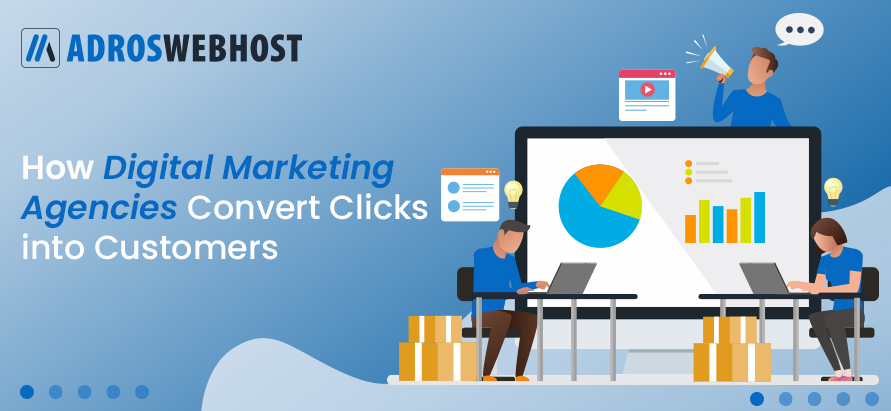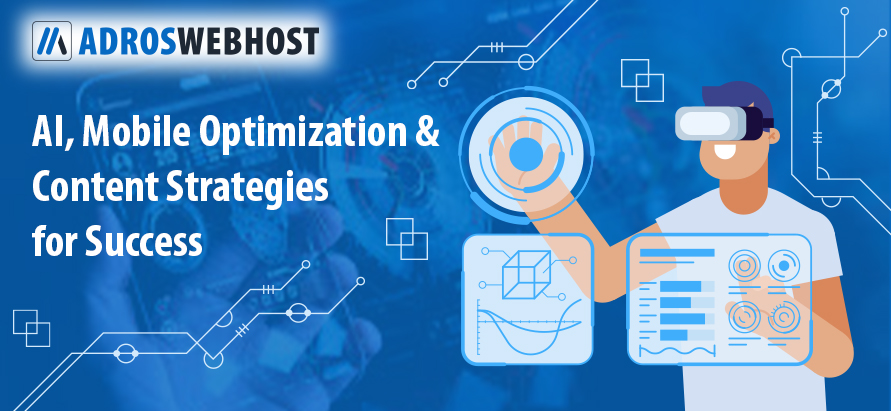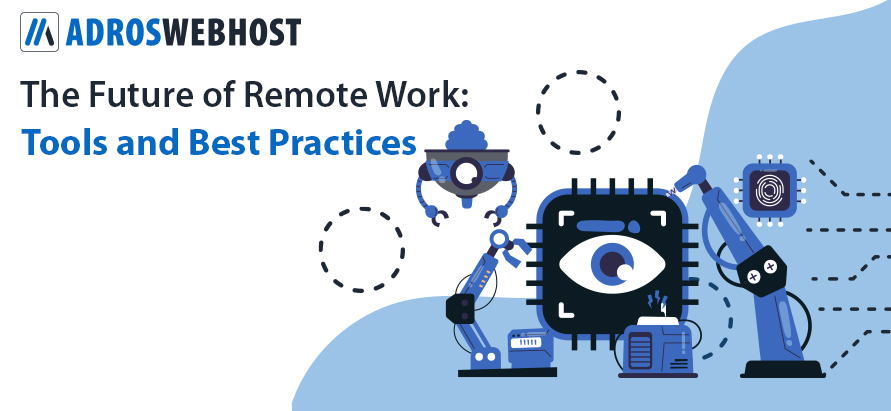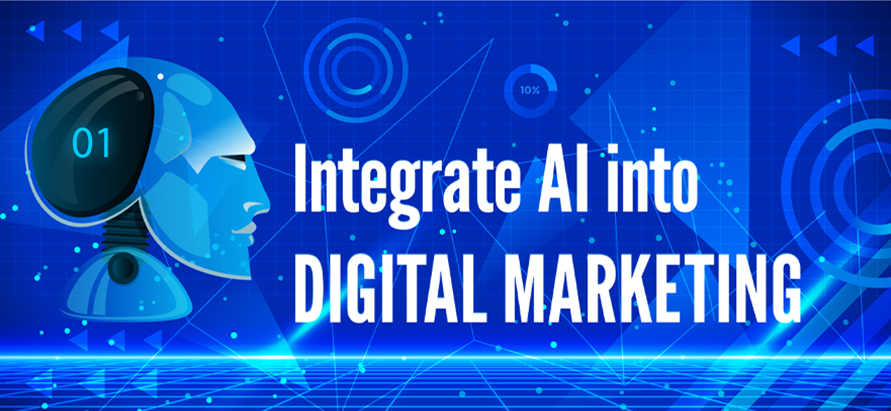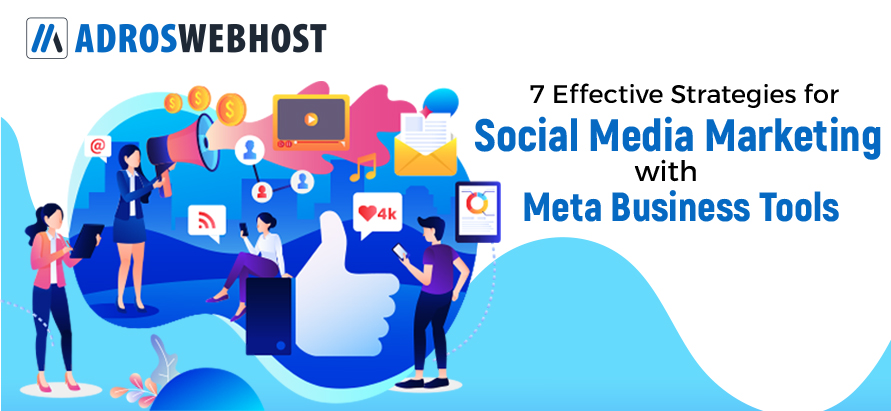How Digital Marketing Agencies Convert Clicks into Customers
In the world of digital marketing, getting people to click on your website is just the beginning. The real challenge is turning those clicks into loyal customers. The best digital marketing agencies use a range of smart strategies to make this happen. Here’s how they do it, with insights from AdrosWebHost.
Understanding the Customer Journey
- Detailed Funnel Analysis: These agencies begin by carefully mapping out the customer’s path. They identify key stages like awareness, consideration, and decision-making. This helps them see where potential customers might lose interest and where to put strategies in place to keep them engaged.
- In-Depth Audience Research: Understanding who the target audience is really important. Agencies do thorough research to collect information about things like age, interests, and what people do. They use this data to make marketing campaigns that are tailored to what potential customers want and need.
Crafting Engaging Content
- High-Quality Blog Posts: In digital marketing, good content is super important. Agencies create top-notch blog posts and articles that help people. By talking about common problems and giving solutions, these pieces not only bring in visitors but also make the agency seem reliable and trustworthy.
- Captivating Visuals: Pictures and videos are more interesting and easier to understand than just words. It uses eye-catching visuals to grab people’s attention and get their message across better. This makes it more likely that people will take action and become customers.
Optimizing for Search Engines
- Advanced SEO Techniques : Search Engine Optimization (SEO) is super important for getting free traffic from search engines. It uses smart SEO tricks like picking the right keywords, getting other websites to link to theirs, and making their site load faster. This helps their website show up higher in search results, bringing in more people who might become customers.
- Targeted SEM Campaigns: Search Engine Marketing (SEM) is about paying for ads, like on Google. Agencies run focused SEM campaigns to target certain groups of people and keywords. This makes sure that ads are shown to people who are more likely to become customers.
Harnessing the Power of Social Media
- Strategic Social Media Marketing: Social media sites are really important for talking to possible customers. It makes and looks after profiles on different sites. They post stuff often and chat with people who follow them to make a community around the brand.
- Influencer Partnerships: Working with famous people who have lots of followers can make a brand much more popular. This finds influencers whose followers are like the target audience and team up with them to talk about products or services. This uses their popularity and big audience to help spread the word about the brand.
Effective Email Marketing
- Personalized Email Campaigns: Sending emails is a strong way to keep in touch with possible customers. it makes special email plans that give useful content, deals, and suggestions about products, all based on what users do. This keeps potential customers interested and involved.
- Automated Follow-Ups: Automation Tools that work automatically help agencies send more emails when certain things happen, like when someone leaves items in their shopping cart or signs up for something. These emails remind possible customers to finish buying stuff, which makes more people actually buy things.
Leveraging Analytics for Continuous Improvement
- Data-Driven Insights: Analytics Tools that study data give useful information about how well campaigns are doing. It uses these tools to watch important numbers like how many people click on stuff, how many leave quickly, and how many actually buy things. This information helps them see what’s working well and what needs changing.
- Continuous A/B Testing: A/B testing is when agencies compare different versions of a webpage or ad to see which one is better. They keep doing these tests to make their strategies better, making sure they use the best ways to turn clicks into customers.
Enhancing User Experience
- Optimized Website Design: Having a good website is super important for keeping visitors interested. It makes sure websites look nice, are easy to use, and work well on computers and phones. This makes it easy for people to move around the site and have a good experience.
- Responsive Customer Support: Giving good customer support can make a big difference in how many people buy things. These use stuff like live chat and chatbots to help visitors right away, answering their questions and helping them decide to buy something.
Digital marketing agencies are good at turning clicks into customers. They do this by understanding how customers think, making interesting content, getting noticed on search engines, using social media well, sending effective emails, watching data closely, and making websites easy to use. Agencies like AdrosWebHost show how to do all of this, making sure every click could become a loyal customer.
Navigating the SEO Landscape in 2024: AI, Mobile Optimization, and Content Strategies for SEO Success
Search Engine Optimization (SEO) is always changing, and 2024 brings new updates. With AI becoming more advanced, mobile optimization becoming more important, and strong content strategies being essential, businesses need to keep up and stay flexible. Here’s an easy guide to help you understand and succeed in SEO in 2024.
Embracing AI-Driven SEO
- The Rise of AI in SEO
Artificial Intelligence is changing SEO in big ways. Tools like Google’s RankBrain and BERT help search engines better understand and rank content by focusing on the meaning and intent behind search queries. This means marketers need to make sure their content is clear and relevant to what people are searching for.
- Leveraging AI Tools
AI tools can look at a lot of data to give you insights about keyword trends, user behavior, and what your competitors are doing. Tools like Clearscope, MarketMuse, and Surfer SEO help you create content that matches what search engines are looking for, making it easier for your content to rank higher.
- Personalization and User Experience
AI makes it possible to personalize content more than ever, which is crucial for keeping users interested. By looking at user data, AI helps create content that matches what each person wants. This results in better user engagement and boosts SEO performance.
Mobile Optimization: A Non-Negotiable Factor
- Mobile-First Indexing
Google’s mobile-first indexing means that Google uses the mobile version of your site to decide how to index and rank it. Making sure your site is mobile-friendly is now a must for good SEO.
- Enhancing Mobile User Experience
Having a responsive design is really important. Your website needs to work well on all devices. That means it should load quickly, be easy to move around, and have text that’s easy to read without needing to zoom in.
- Accelerated Mobile Pages (AMP)
Using AMP can make a big difference in how well your site works on mobile. AMP is a system that makes mobile pages load really quickly, making things better for users and possibly helping your site rank higher.
Content Strategies for SEO Success
- High-Quality, Relevant Content
In SEO, what really matters is the content you put out there. Make sure it’s top-notch, useful stuff that your audience will love. That means writing detailed articles, interesting blogs, helpful videos, and fun interactive content.
- E-A-T: Expertise, Authoritativeness, Trustworthiness
Google says that E-A-T is super important for good content. Make sure your content shows you’re really good at what you’re talking about, you’re reliable, and people can trust you. Do this by adding info about who wrote it, using trustworthy sources, and keeping your content up to date so it stays useful and true.
- Long-Form Content and Topic Clusters
Longer articles usually do better in search results because they cover topics more thoroughly. Also, grouping related pages around a main page helps organize your content better and makes it easier for search engines to explore and list your website.
Keeping Up with Algorithm Updates
- Staying Informed
People who work in SEO need to keep up with the newest changes in how search engines rank websites. Read trustworthy SEO news, join webinars, and be active in online forums related to the industry to stay informed about the latest updates.
- Adapting Strategies
When a search engine changes how it ranks websites, check how it affects your site and change your plans as needed. You might need to edit your content, update technical stuff for SEO, or make the website better for users.
To do well with SEO in 2024, you need to use AI, focus on mobile-friendly content, and make strong plans for what you publish. By keeping up with changes and being flexible, companies can make sure more people find them online, rank higher in search results, and keep doing well with SEO over time.
What Are the 5 Reasons to Hire an SEO Agency for Your Website Redesign or Migration?
In today’s changing digital world, think of your website like your online shop front. It’s not just a place where people browse, it’s the main thing that helps you get noticed online. When businesses update or move their websites, they sometimes forget about Search Engine Optimization (SEO). But ignoring SEO during these changes can hurt how easily people can find your site, which can hurt your business’s profits. Here are five good reasons why it’s important to get help from an SEO agency when you’re redesigning or moving your website.
1. Seamless Transition Without Losing Traffic
When you redesign or move your website, you’re making big changes to how it looks and works, maybe even changing its web address. If you don’t plan carefully and do things right, these changes can mess up how many people visit your site from search engines like Google, which can make your site harder to find. But if you work with an SEO agency that knows what they’re doing, they can make a detailed plan to make sure the transition goes smoothly. They’ll set up things like 301 redirects to guide visitors to the new site, make sure search engines understand the changes, and fix any problems before they become big issues. This way, your website stays easy to find, and you won’t lose any important visitors.
2. Boosting SEO Strength
As your website exists longer, it gains more SEO value from things like other websites linking to it, where it shows up in searches, and how trustworthy it seems to search engines. When you change or move your website, it’s super important to keep and maybe even boost this SEO value. An SEO agency knows how to check your website thoroughly to find the good stuff, like valuable links and keywords, and then make plans to keep and make them even better. They might do things like making sure old links still work or making your website better for search engines. This careful work helps your website stay visible online and show up well in search results.
3. Making mobile-friendly, fast-loading pages
Today, most people use phones and tablets to browse the internet. So, it’s super important that your website works well on these devices. Also, how fast your pages load is really important for how people feel about your site and how high it shows up in search results. An SEO agency can make sure your website looks great and works fast on all devices by doing things like making images load quicker and organizing the code better. This makes your website better for people and tells search engines that it’s really good, helping it show up higher in search results.
4. Using Technical Skills to Make Things Work Better
Every good-looking website has a bunch of technical stuff going on behind the scenes that really affects how well it shows up in search results. Things like how the website is organized, what its web addresses look like, and some special code called schema markup. Figuring out all these technical details needs special knowledge and skills. An SEO agency knows all about this stuff and can make sure your website’s technical side is set up to help it show up better in searches. They’ll use smart coding, organize data the right way, and fix any technical problems. This makes sure search engines can easily read and understand your website, so it shows up higher in search results.
5. Continuous Monitoring and Adaptation
The online world keeps changing, especially how search engines decide which websites to show first. To keep up, you need to keep an eye on how your website is doing and make changes when needed. An SEO agency uses powerful tools to watch how your website is doing after any big changes, like a redesign or move. They look at things like how many people visit your site from searches, what words they use to find it, and how much they interact with it. Then, they use this info to keep making your website better. They might change what you write about, focus on different words, or fix any technical problems. This way, your website stays strong even as search engines change.
Starting a big project like redesigning or moving your website can be tough, but it’s also a chance to make things even better. With help from a skilled SEO agency, you can tackle this project knowing they’ve got your back. They’ll make sure your website transitions smoothly, fix any technical issues, and keep an eye on how it’s doing even after the changes. With their help, your website will not just survive but do really well in the online world, bringing in lots of visitors and making sure people notice you.
The Future of Remote Work: Tools and Best Practices
Remote work has quickly changed from a trend to a big change in how businesses work. As technology improves and workplaces get more flexible, it’s important for both employers and employees to know the tools and best ways to work remotely. Let’s look into the future of remote work and explore the key tools and practices that are shaping this changing landscape.
1. Collaboration Tools
Good collaboration is essential for remote work. To make communication and teamwork smooth, businesses are using different collaboration tools:
- Video Conferencing Platforms: Tools such as Zoom, Microsoft Teams, and Google Meet allow remote teams to have virtual meetings, share screens, and collaborate in real time.
- Project Management Software: Platforms like Asana, Trello, and Monday.com assist teams in organizing tasks, monitoring progress, and staying productive across various time zones.
- Instant Messaging Apps: Slack, Microsoft Teams, and Discord offer quick communication channels for instant updates, casual chats, and team bonding.
2. Cloud-Based Services
The cloud has transformed remote work by allowing access to files and applications from anywhere with an internet connection. Cloud-based services provide advantages like:
- File Storage and Sharing: Google Drive, Dropbox, and OneDrive let teams securely store, share, and work together on documents.
- Software as a Service (SaaS): Subscription-based tools such as Office 365, G Suite, and Adobe Creative Cloud offer important software that can be used on any device.
3. Cybersecurity Solutions
Remote work brings higher cybersecurity risks. Employers need to invest in strong security measures to safeguard sensitive data:
- Virtual Private Networks (VPNs): VPNs encrypt internet connections to protect remote workers’ online activities from potential threats.
- Multi-Factor Authentication (MFA): Using MFA adds extra security layers to prevent unauthorized access to company accounts and data.
4. Establishing Remote Work Best Practices
Effective remote work depends on clear practices that boost efficiency, teamwork, and a healthy work-life balance:
- Clear Communication: Set up regular times to communicate, define when to expect replies, and use video meetings to keep the team connected and working well together.
- Goal-Oriented Task Management: Encourage setting clear goals, setting deadlines, and using productivity techniques such as time blocking and the Pomodoro Technique to stay focused and efficient.
- Maintaining Boundaries: Create specific work areas, set regular work hours, and promote taking breaks to avoid burnout and support mental well-being.
5. Embracing Flexibility and Adaptability
The future of remote work revolves around flexibility and adaptability. Companies that adopt remote work trends can gain several benefits:
- Access to Global Talent: Remote work lets businesses access a diverse talent pool from around the world, encouraging innovation and creativity.
- Cost Savings: Lower expenses for office space, commuting, and utilities can greatly improve a company’s financial situation.
- Improved Work-Life Balance: Working remotely gives employees more freedom, helping them manage both personal and work responsibilities more effectively.
In conclusion, the future of remote work looks promising, driven by advances in technology and changing work preferences. By using the right tools and following best practices, businesses can boost productivity, encourage teamwork, and establish a sustainable remote work culture that meets the evolving needs of today’s workforce. To succeed in remote work, focus on innovation, communication, and flexibility to help remote teams reach their full potential in the digital era.
The Top 5 Strategies for Maximizing Your Google Ads Performance
In today’s online world, where lots of businesses are competing, knowing how to use Google Ads is super important if you want your business to do well. There are millions of searches happening all the time, and Google Ads lets you show your ads to people who might be interested in what you offer. But just putting up ads isn’t enough. To really do well and get the best results, you need to have a good plan for how you use Google Ads. Let’s talk about why having a plan for Google Ads is so important, and we’ll go through five simple strategies to help you get the most out of it.
Why Does Google Ads Strategy Matters?
- Precision Targeting: It helps you aim your ads very precisely. You can focus on things like who sees the ads, what they like, or what they’re searching for. Having a good plan makes sure your ads get to the right people. If you don’t plan well, you might spend money on clicks and views from the wrong people, and that means you won’t get as much back from what you put in.
- Cost Efficiency: Having a good plan for Google Ads isn’t just about using money, it’s about using it smartly. A carefully planned campaign can save money by picking the best ways to bid, boosting Quality Scores, and targeting the right keywords that bring in more customers. If you don’t have a plan, you might end up spending too much without getting much in return.
- Competitive Edge: In the rough online world, having a clear plan for Google Ads can really help you stand out. If you keep improving your strategy, keep up with what’s new in your industry, and try out new ideas, you can beat your rivals and stay ahead.
- Measurable Results: One great thing about this is that it gives you lots of information and shows you exactly what’s working. But to use this information well, you need a strong plan. Set clear goals, keep an eye on important numbers, and make changes based on what the data tells you. This way, you can keep getting better results and make the most of your investment.
- Brand Visibility and Authority: Google Ads don’t just bring in visitors right away, they also make your brand more well-known and respected. With a good plan, you can make ads that people really like, improve your website pages, and keep your brand looking the same everywhere. Doing this over time makes people trust your brand more and want to keep coming back.
The Top 5 Strategies for Maximizing Your Google Ads Performance
- Keyword Research and Optimization: Do careful research to find the best words people use when they’re looking to buy something. You can use tools like Google Keyword Planner, SEMrush, or Ahrefs to find new words and see how many people are searching for them, and how many other websites are using them. Keep updating your list of words based on how well they’re working, so you always get the best results.
- Compelling Ad Copy and Creative: Write ads that make people interested, show what’s special about what you’re selling, and make them want to click. Try different versions of your ads to see which ones work best. Add extra information like links to your site, special offers, and details to make your ads stand out more and get more people interested.
- Optimized Landing Pages: Make sure your landing pages are set up to make people take action and are easy to use. Make sure what your ads say matches what’s on your landing pages, so people aren’t confused. Test different versions of your landing pages to see what works better and make changes to improve them.
- Smart Bidding Strategies: Use Google’s smart ways of bidding, like Target CPA, Target ROAS, or Maximize Conversions, to get the most out of your campaigns. Let computer programs change your bids based on what’s happening right now and how people are acting. Keep an eye on how your bids are working and change them if you need to reach your goals.
- Continuous Monitoring and Optimization: Keep an eye on your Google Ads often and check how well they’re doing. Look at important numbers like how many people click your ads, how many of those clicks lead to sales, how much it costs you to get each sale, and how much money you make from your ads compared to what you spend. Keep making changes to your ads to make them work better, like deciding when they show up, who sees them, and how they’re organized. This helps you make the most out of your ads.
In conclusion, it’s really important to have a good plan for using Google Ads if you want to get the best results for your business. If you know why having a plan is so important and use the top five strategies we talked about earlier and stay flexible to adapt to new trends and information, you can do really well with your Google Ads.
The Future of Content Creation: Integrating AI into Digital Marketing
In today’s fast-changing world of digital marketing, creating content is super important for brands to connect with their audiences. But things are changing fast. People’s tastes are different now, and technology keeps getting better. So, the old-fashioned ways of making content are changing too. Now, with Artificial Intelligence (AI) becoming a big thing, businesses are looking for new and smart ways to use AI in their digital marketing plans. They want to make content creation easier and get even better results.
1. Understanding AI in Content Creation
AI, especially through things like natural language processing (NLP) and machine learning, has totally changed how we make content. These AI tools look at tons of data to figure out what people like, what they do online, and what’s popular. They then use that info to help us make content that’s just right for the people we want to reach. It’s like having a super-smart assistant that knows exactly what everyone wants to see.
2. Personalization at Scale
AI is really good at making content feel personal to lots of people all at once. It looks at data to figure out who’s seeing the content and then makes special versions that suit each group. So, everyone gets content that feels just right for them based on things like what they like, how old they are, and what they do online. This makes people like the content more, get involved with it, and even buy things because of it.
3. Content Generation and Curation
AI tools can make content all on their own. They can write blogs, articles, social media posts, and even product descriptions without needing any help. They’re really good at it, and they do it quickly and without costing a lot of money. This saves time for marketers and makes sure that all the content across different places looks and sounds the same.
4. Enhanced SEO Strategies
AI helps make sure content shows up high in search results. It looks at what people are searching for online and figures out the best words to use in content to get noticed. It also helps with things like making sure web pages have the right stuff on them to be found easily. Plus, it can give ideas for what topics to write about that people will want to read. This helps marketers beat the competition and get more people to visit their websites without having to pay for ads.
5. Visual Content Creation
In the past, we mainly used AI for writing stuff. But now, we’re starting to use it for making pictures and videos too. These AI tools can create all sorts of visual content like images, videos, and infographics. They do it based on what we tell them to do and how we want our brand to look. This makes it easier to be creative and make sure everything looks like it’s supposed to, which helps people recognize and like our brand.
6. Data-Driven Insights
AI helps marketers understand how well their content is doing and what people are doing when they see it. It looks at things like how many people click on links, how many people get involved with the content, and how many people end up buying something because of it. With this info, AI can figure out what’s working and what’s not, helping marketers decide what to do next. It’s like having a smart coach that tells you how to improve your game so you can get the best results possible.
7. Augmented Creativity
Some people think AI takes away human creativity, but it actually helps make it better. It takes care of boring stuff like doing the same tasks over and over again and gives us helpful info based on data. This means we can spend more time coming up with cool ideas, telling stories, and making our brand better. Working together like this makes our content stand out and have a bigger impact on people.
Using AI in digital marketing is changing how we make content in the future. With AI tools, businesses can make content that feels personal to lots of people, make it without needing much help, and make sure it shows up high in search results. AI also helps us understand what people like. But even though AI is super helpful, we shouldn’t forget how important human creativity is. The best way to make content that people love is to mix AI tools with human ideas and stories. Finding the right balance between AI and human creativity is key to making content that really connects with people online.
Why influencer marketing is important for business?
In the era of social media dominance, influencer marketing stands out as a powerful strategy for businesses aiming to grow their audience, gain trust, and boost interaction. By tapping into the sway of individuals with significant and devoted followers, influencer marketing brings various advantages for businesses, big or small. Let’s uncover why it’s vital for business success and check out some simple yet effective ways to make it work.
Why Influencer Marketing Matters:
Amplifying Brand Visibility:
Influencers can connect with thousands or even millions of followers on different social media platforms. Collaborating with influencers whose audience matches your target demographic can greatly boost your brand’s visibility and reach.
Fostering Consumer Trust and Loyalty:
People trust recommendations from those they follow and look up to. When an influencer genuinely endorses your products or services, it builds trust and credibility with their followers, fostering greater brand loyalty and advocacy.
Utilizing Social Proof to Strengthen Brand Image:
Social proof, like when influencers get likes, comments, and shares, can really boost how people see your brand. When customers notice others interacting positively with your brand, it makes them see your brand as more credible and valuable.
Authentic Content Creation:
Influencers are great at making real and relatable content that connects with their followers. When businesses team up with influencers, they can use this creative skill to make interesting content that shows off their products or services in a natural and convincing way.
Cost-Effectiveness and ROI Analysis:
Influencer marketing usually gives a better return on investment (ROI) compared to old-school advertising methods. By keeping an eye on things like likes, views, and sales, businesses can see how well their influencer campaigns are doing and make them even better.
Strategies for Effective Influencer Marketing:
Identify the Right Influencers:
Spend some time researching and finding influencers whose values, interests, and audience match your brand. Seek out influencers who truly connect with their followers and consistently create great content.
Build Authentic Relationships:
Think of working with influencers as teamwork rather than just business deals. Build real connections with influencers based on respect and common aims. This way, you’ll get more genuine endorsements and forge lasting partnerships.
Create Compelling Content Briefs:
Give influencers straightforward instructions and creative briefs that explain your campaign goals, messages, and what you expect. Urge influencers to add their personal touch and style to the content, while still staying true to your brand.
Measure and Analyze Performance:
Use analytics tools to keep an eye on important stats like how many people you’re reaching, how much they’re engaging, and how many are buying. Study this info to see what’s going well and what could be better. Then, use what you learn to make your influencer marketing better and get the most out of it.
Stay Compliant and Transparent:
Make sure influencer collaborations follow the rules, like clearly saying when content is sponsored. Being open creates trust with customers and keeps your brand honest, which is crucial for everyone.
In conclusion, Influencer Marketing is a must-have for businesses aiming to shine in a busy online environment. Leveraging the impact of individuals with loyal followers allows businesses to boost their brand presence, build trust with consumers, and create meaningful connections. Through employing successful strategies and fostering genuine relationships with influencers, businesses can unleash the complete power of influencer marketing, leading to sustainable growth over time.
2024 Social Media Trends: Mastering Strategies, Platforms, and Influencer Marketing
In the fast-changing world of social media, it’s super important for both businesses and people to stay up to date. As we roll into 2024, it’s a must to know what’s trending in the digital world. Let’s take a closer look at the cool things happening – from new ideas and upcoming platforms to how influencers still play a big role. These are the main things that will make social media awesome in the next year.
Strategic Evolution: Moving Past the Usual Ways
Social media plans aren’t the same for everyone anymore. In 2024, we think there will be a big change toward making things more personal and specific. Companies will aim to make posts that really connect with different groups of people, using data and smart tech to make their messages fit just right. This change is all about making real friendships with customers, making them stick around, and getting good results.
Platform Dynamics: Navigating the Diversity
Big names such as Facebook, Instagram, and Twitter are still really popular, but there are new platforms becoming more popular too. Look out for places like TikTok, Clubhouse, and others that are made for specific groups of people. To do well on social media, it’s important to really get each platform and make content that suits what people like and do in those different places.
The Rise of Meta and Virtual Experiences
Meta Platforms Inc. is becoming really important, and now, virtual and augmented reality are becoming big parts of social media. Get ready for cool stuff like immersive content and virtual events becoming more popular, giving new chances to connect. Companies should think about how they can use these technologies in their plans to make experiences that people remember and want to share.
Influencer Marketing 2.0: Authenticity and Micro-Influencers
Nowadays, being real is super important to smart shoppers. Influencer marketing is changing to include not just famous people, but also micro-influencers – folks with smaller, but really involved, groups of followers. People see them as more genuine and easy to relate to, so when they recommend something, it means more. In 2024, brands that do well will team up with influencers who share their beliefs, making honest connections that matter to their fans.
Ephemeral Content and the FOMO Factor
The fear of missing out (FOMO) still makes people get involved on social media. Quick-to-disappear content, like Stories on Instagram and Snapchat, uses this feeling. Companies will use temporary content more and more to make users feel like they’re part of something special right now. This encourages people to keep checking back so they don’t miss any new stuff.
Social Commerce Integration: Seamless Shopping Experiences
Nowadays, social media isn’t just for chatting; it’s like a big store too. Adding shopping features to sites like Instagram and Facebook is changing how people buy stuff. In 2024, brands will work on making shopping online feel as easy as chatting with friends. This means you might not even notice when you’re discovering new things and when you’re buying them.
In conclusion, to be really good at social media, you need to be able to change and know what’s new. In 2024, both businesses and regular folks should follow the latest trends and adjust how they do things to match what people want. By keeping up with what’s happening and being able to change quickly, you can do well in the fast-moving world of social media for a long time.
7 Effective Strategies for Social Media Marketing with Meta Business Tools
In today’s digital world, social media is super important for promoting businesses, big and small. Platforms like Facebook, Instagram, and WhatsApp, all part of Meta, are awesome for boosting your marketing. Using Meta’s business tools can really make a difference.
Here are seven simple ways to make your social media marketing better with Meta Business Tools:
1. Data Analysis and Metrics
Understanding data is super important in Meta Social Media Marketing. Businesses need to look at social media numbers to see what’s going on. This means checking out things like how many people are interacting, clicking on links, and actually buying stuff. When they get what these numbers mean, businesses can make their strategies better and make their ads work even more effectively.
2. Personalization
Making things personal is super important in marketing nowadays. With Meta Social Media Marketing, businesses can make content that’s just right for each person. They can look at what users like, where they’re from, and what they do online to make content that really speaks to them. Personalized marketing doesn’t just get people interested, it also helps build a stronger bond with the audience.
3. Multi-Platform Approach
Meta Social Media Marketing goes beyond just one platform. It’s on lots of different social media sites like Facebook, Twitter, Instagram, LinkedIn, and others. Each site needs its own plan, and Meta Social Media Marketing makes sure that the right stuff gets to the right people on each site.
4. Customer Journey Mapping
Knowing how customers go from finding out about a brand to buying stuff is really important in marketing. With Meta Social Media Marketing, businesses track this journey from when someone first hears about them to when they make a purchase. This helps them figure out all the places where they interact with customers and find ways to make those interactions even better.
5. Influencer Marketing
Using influencers is a big deal in Meta Social Media Marketing. When businesses team up with influencers in their field, they can reach more people and become more trusted by the folks they want to reach.
6. A/B Testing
Trying out different things is really important in Meta Social Media Marketing. When businesses do A/B testing, they experiment with different content and ways of doing things. This helps them figure out what works best and make their campaigns even better.
7. Social Listening
Social listening means keeping an eye on social media to see when people talk about a brand. By doing this, businesses can learn more about their audience and make sure they address any issues or questions people have.
In conclusion, using Meta Business Tools can really boost your social media marketing. Make interesting content, use Facebook Ads, connect with your audience, work with influencers, join Facebook Groups, improve your profile, and check how well you’re doing. Doing these things can help your brand get more attention and achieve better results on social media.
Optimizing Your Digital Marketing Strategy for 2024: Top Trends, AI Tools, and Immersive Experiences
In the world of digital marketing, it’s super important to keep up with the changes to succeed. As we head into 2024, things are still shifting, which brings both challenges and chances for businesses. Here, we’ll talk about the big trends in digital marketing, the cool AI tools changing how things work, and why immersive experiences are so important for getting people’s attention and keeping them interested.
Embracing Top Trends in Digital Marketing
- Personalization: In the past, everyone got the same marketing messages. But now, people want marketing that’s just for them. They want ads and promotions that match what they like and want. Marketers can use data and AI to make super-specific campaigns that really connect with each person.
- Video Content Dominance: Videos are still really important online, especially on places like TikTok and YouTube which lots of people love. Marketers should focus on making video content for all their platforms. They can use live streams, stories, and interactive stuff to connect with people in real and important ways.
- Voice Search Optimization: Because smart speakers and virtual assistants are getting more popular, it’s important for marketers to make sure their content works well with voice search. They need to change their SEO plans to fit how people talk, using longer, more specific keywords and natural language.
- Ephemeral Content: The trend of short-lived content on platforms like Instagram and Snapchat shows how important it is to share things that are happening right now. Marketers should use disappearing content to make people feel like they need to act quickly and not miss out on something exciting.
Harnessing AI Tools
- Predictive Analytics: AI-powered predictive analytics help marketers predict what consumers will do and what trends will happen with very good accuracy. By looking at a lot of data right away, businesses can make smart choices and make their marketing plans even better for the best results.
- Chatbots and Virtual Assistants: Chatbots and virtual assistants are super helpful for giving quick help to customers and suggesting things personalized just for them. These AI-powered helpers make customers happier and also help people focus on harder jobs instead.
- Content Generation: AI-powered tools for making content make it easier for marketers to make lots of really good content. These tools can help with writing, editing pictures and videos, and more. They make it simple for businesses to make interesting things that people will like.
- Dynamic Pricing: AI algorithms can look at how markets work and how people behave to make prices just right in real-time. By changing prices depending on how much people want something, how many other sellers there are, and other things, businesses can make the most money and stay ahead of others trying to do the same thing.
Crafting Immersive Experiences for Audience Engagement
- Augmented Reality (AR) and Virtual Reality (VR): AR and VR technology blend the real world with the digital one to create exciting experiences. They can display products virtually or tell stories that you can be a part of. These technologies grab people’s attention and make them eager to participate in what they’re experiencing.
- 360-Degree Content: 360-degree content allows you to explore virtual places from all angles, making it feel like you’re actually there and letting you interact with what you see. Marketers can use this technology to showcase products, places, and events in a really cool and memorable way.
- Gamification: Gamification makes boring things fun by adding game-like stuff and competition. Things like quizzes, challenges, or getting rewards can make marketing more interesting and make people want to join in. It also makes them like the brand more.
- Live Events and Experiential Marketing: In a world that’s more and more digital, live events and experiential marketing give a chance for people to meet face-to-face, which is nice. By mixing virtual and real-life stuff, brands can make experiences that people remember even after the event is over.
As we deal with the digital world in 2024, it’s important to keep up with new trends, use AI tools, and focus on making experiences that grab attention. Always coming up with new ideas and adjusting to what people like will help businesses find chances to grow and succeed in the always-changing world of digital marketing.
